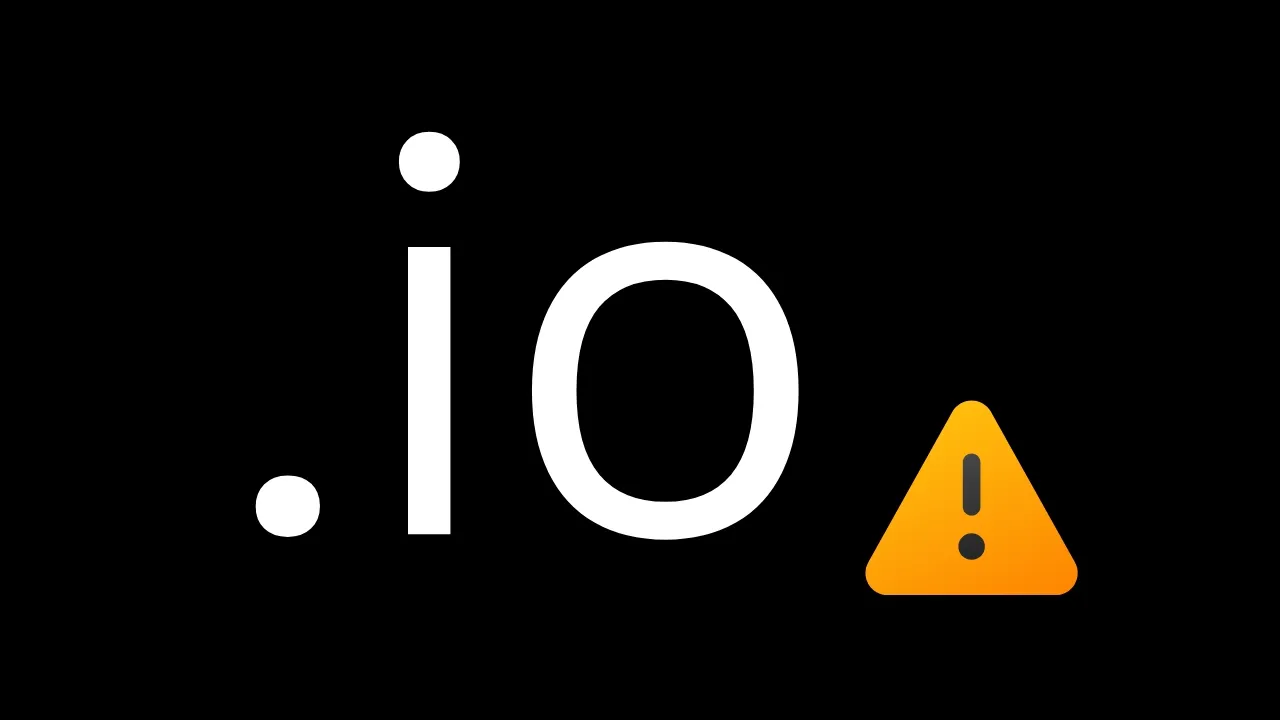.io domains are still 'Kinda' safe

| '.io' might be up for some possible troubles
On October 3, 2024, the UK handed over the Chagos Archipelago (a cluster of islands) to the country of Mauritius. It was celebrated as the UK’s last African colony returned to Mauritius.
This geopolitical act might have unintended effects on the whole internet.
Before granting independence to Mauritius in 1968, Britain separated it and form a new colony on the Chagos archipelago named the British Indian Ocean Territory (BIOT).
For a long time, the UK and the US have operated a military base on Diego Garcia, one of the islands of the Chagos Archipelago.
Mauritius has always argued against the control of the UK over the Chagos Archipelago. After many rounds of talks (and a UN court ruling), this longstanding dispute has finally been resolved.
In return for a 99-year lease for the military base, the islands will become part of Mauritius.
That means the British Indian Ocean Territory will cease to exist, along with the .io domain and countless websites.
What will happen is that the International Standard for Organization (ISO) will remove the country code “IO.” Internet Assigned Numbers Authority (IANA) which creates and assigns top-level domains, uses this code to determine which top-level country domains should exist. Once ‘IO’ is removed, IANA will start the process of retiring .io, which involves stopping new registrations and the expiration of existing ‘.io domains.‘
Little Bit About Domain Names
There are gTLDs (Generic Top-Level Domains) and ccTLDs (Country Code Top-Level Domains).
gTLDs - .com, .net, .org, .edu, .gov
ccTLDs - .us, .uk, .in, .tv, .me, .ai
Here, you might have noticed many domains that you might have thought are generic (.tv, .ai) are just ccTLDs because only ccTLDs are allowed to be two-letter.
ccTLDs are controlled by their respective countries, but you can generally buy them because countries broker them to different domain services.
With companies like Google, Twitch(.tv), Last.fm using these ccTLDs and their popularity, we might forget what they really are.
.io is especially popular because it resembles the computer term “input-output.”
It is huge with start-ups and IT companies.
Now, IANA is responsible for managing domains on the internet, which is part of ICANN (Internet Corporation for Assigned Names and Numbers). They control many things, from domain names to IP addresses.
You can understand that a country ceasing to exist is rare, but when it happens, it does involve geopolitics, and there are clear rules for the retirement of ccTLDs.
Retirement of a Country-Code Top-Level Domain (ccTLD)
Cases of ccTLD Retirement
Following are some retired ccTLDs, when their retirement processes started, and when they retired/transitioned:
.su (Soviet Union): Started in 1994 - still used limitedly (ongoing debate), Dissolution of the Soviet Union
.yu (Yugoslavia): 2007 - 2010, Separated into various countries
Removal of the .yu
.zr (Zaire): 1997, Renamed to the Democratic Republic of the Congo (.cd)
.tp (East Timor): 2002 - 2005, Gained independence from Indonesia and was renamed Timor-Leste (.tl)
.an (Netherlands Antilles): 2010 - 2015, Dissolution of the Netherlands Antilles into Curaçao(.cw) , Sint Maarten(.sx), Caribbean Netherlands
Some Positivity
In cases like .yu (Yugoslavia), there was a huge problem regarding who was the successor and who should own ‘.yu’. In other cases, countries renamed themselves and adopted new domains.
Even though there are rules to retire ccTLDs, they can be transferred.
Delegating or transferring a country-code top-leveldomain (ccTLD)
We might get our first two-letter gTLD; Mauritius might get it, or it might even go to the UK.
To see what will happen is interesting; considering the money involved in ‘.io,’ its huge popularity, and that it was even marketed as a replacement for .com, it’s hard to imagine it dying.
But one thing is clear, be careful when selecting your next domain.